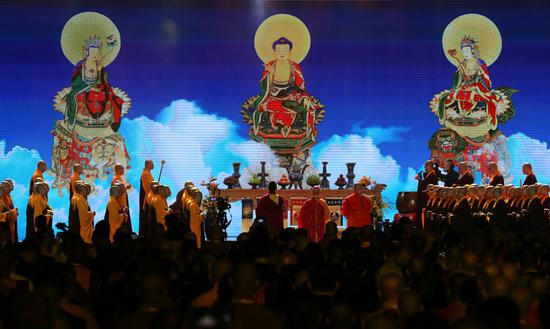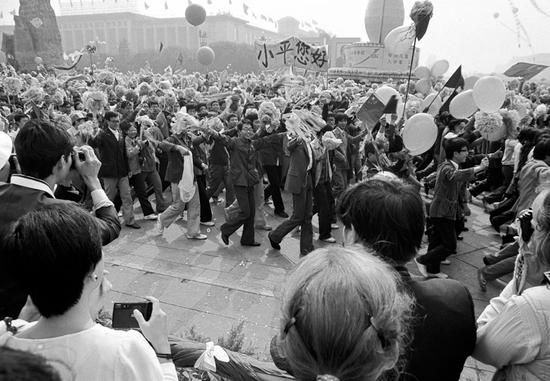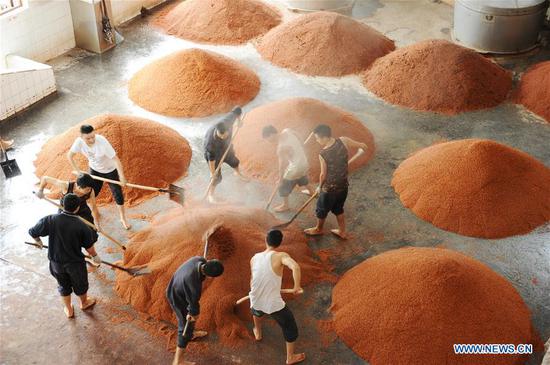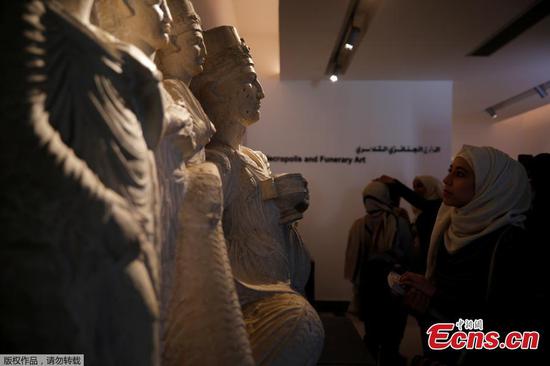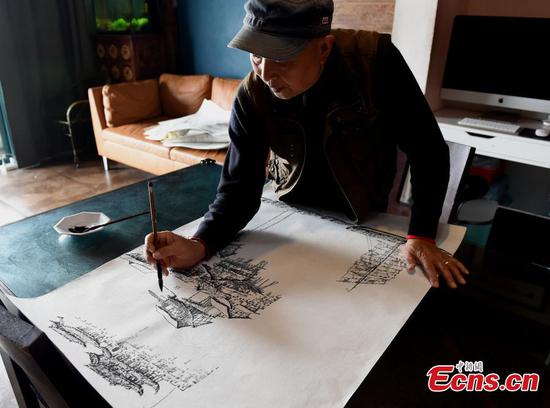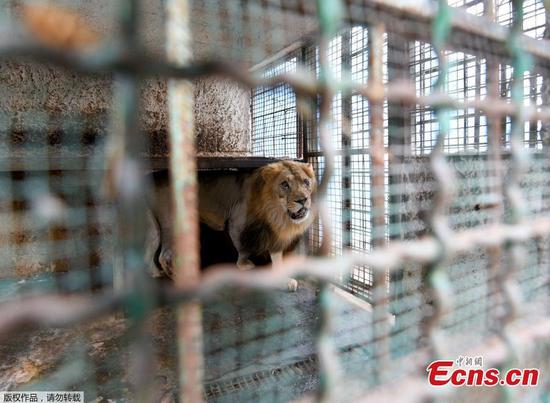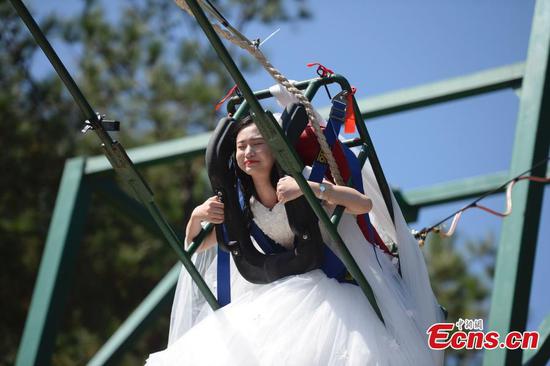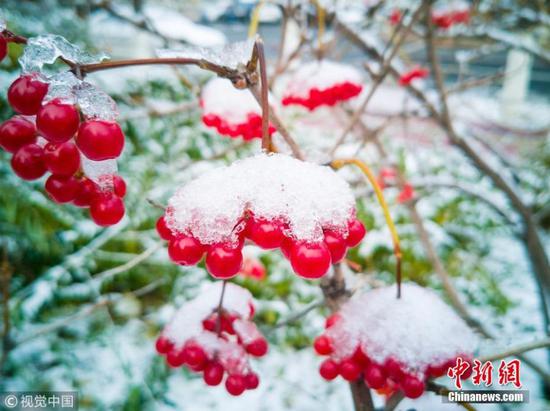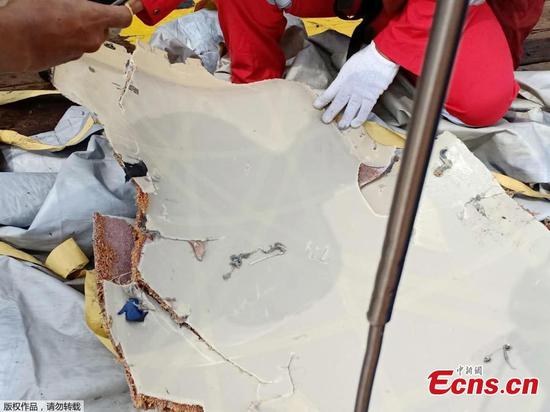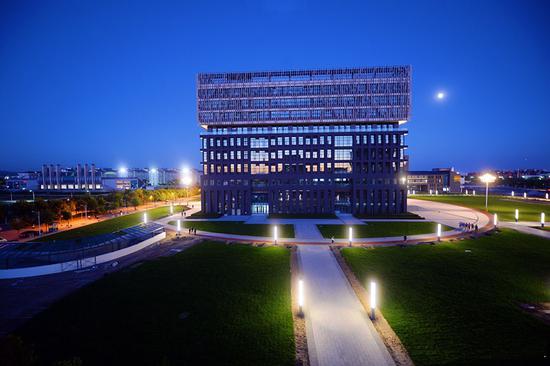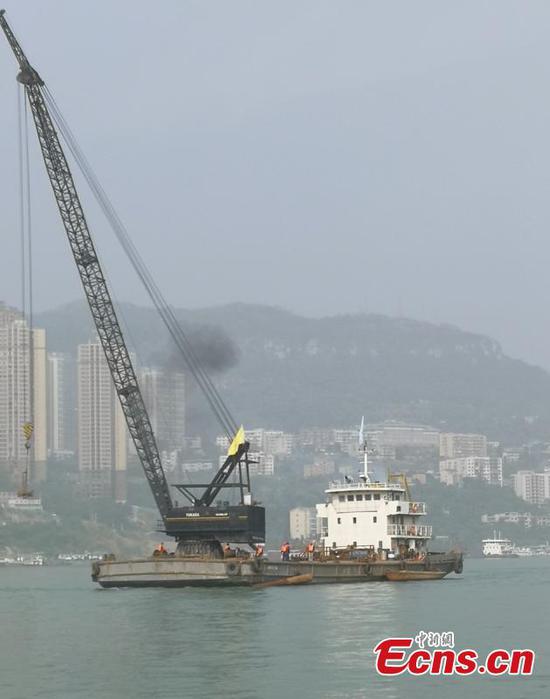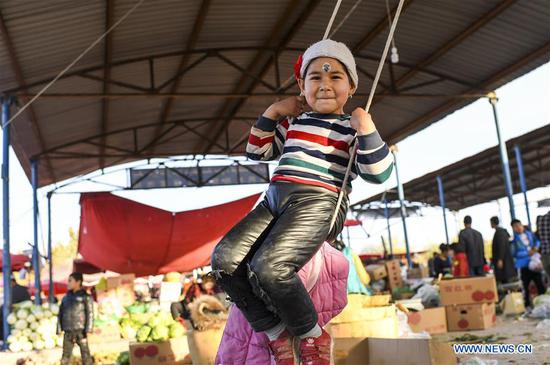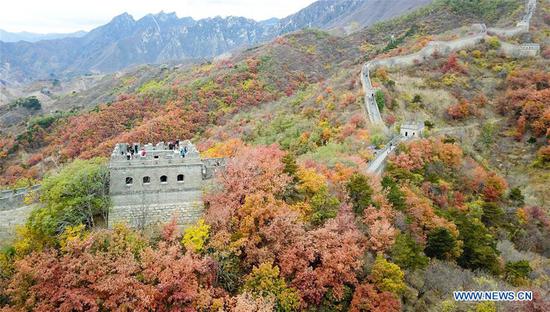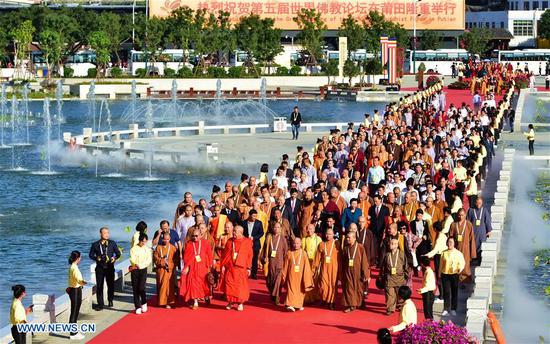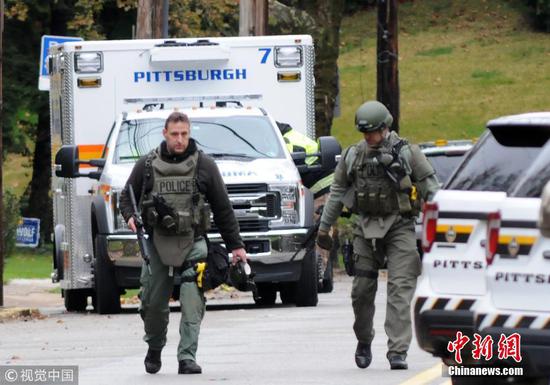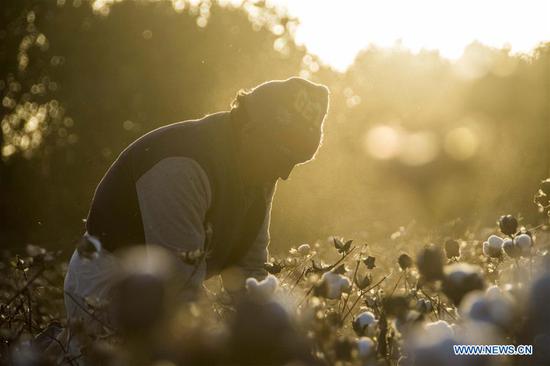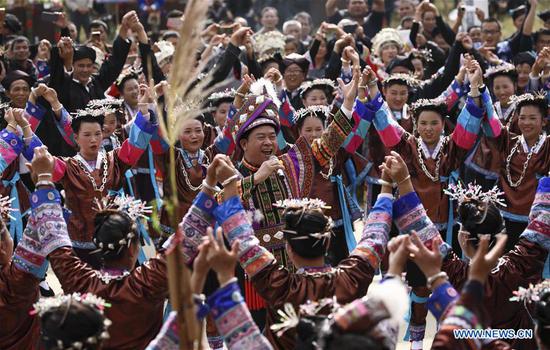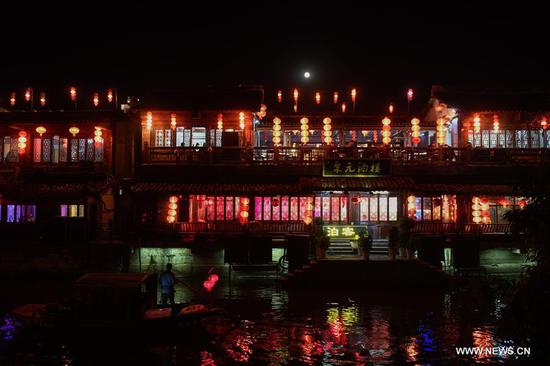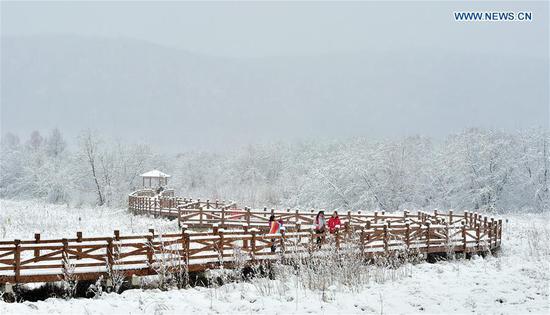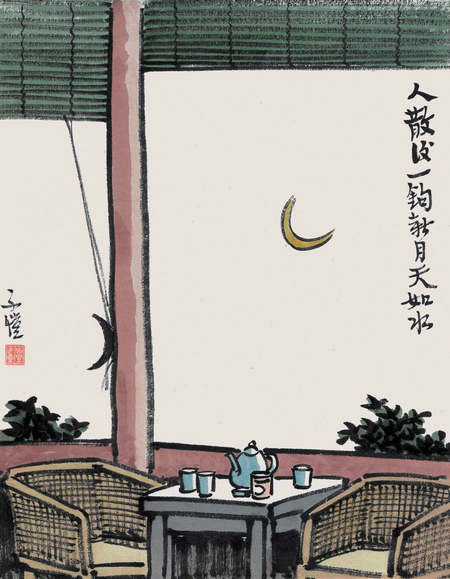
"His brushwork compliment the poems or short comments he has added on the paintings, and together they take the artworks to a higher level," says Song Feijun, one of Feng's grandchildren.
Feng's works show no trace of grand historic narration, but feel like casual conversations with a kind, wise old man living next door. This style defines Big Tree, a painting album featured at the current exhibition in Beijing. The collection of 20 ink paintings, loaned by a private Hong Kong collector, were produced by Feng in 1939 in the Guangxi Zhuang autonomous region, where he and his family took temporary refuge while fleeing their war-torn hometown.
After the War of Resistance against Japanese Aggression (1931-45) broke out, Feng declared that he would "rather be a vagrant than surrender to the invaders". In the paintings, he documented the calamities of war he had witnessed along the way while he asked people not to give up fighting.
In one painting, Feng composed a poem explaining the album's title: "A big tree has been severely cut, but it is still alive. When spring arrives, the tree will sprout feverishly, and what a scene of vitality it will be."









